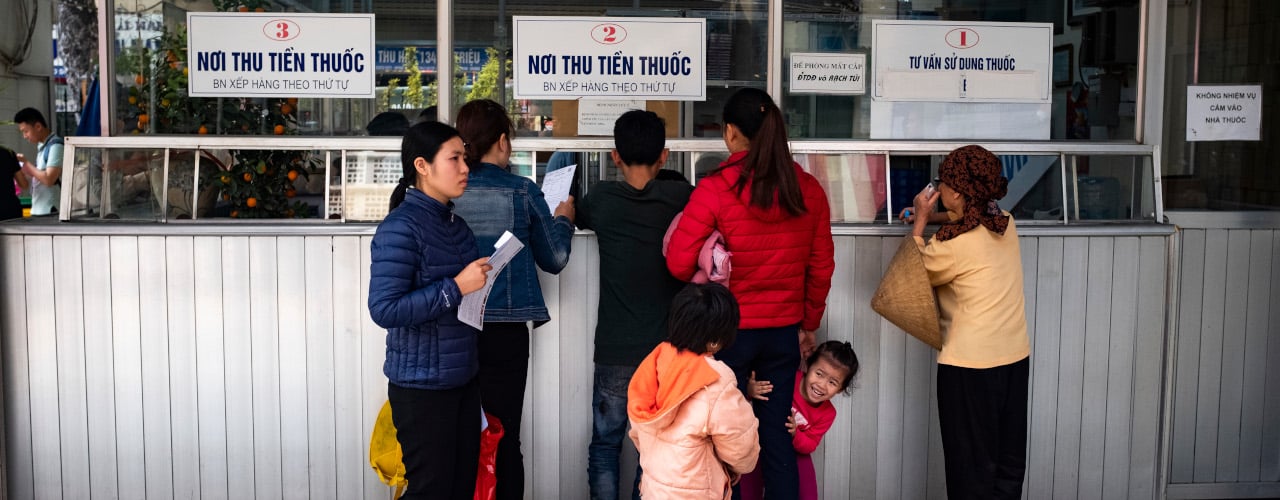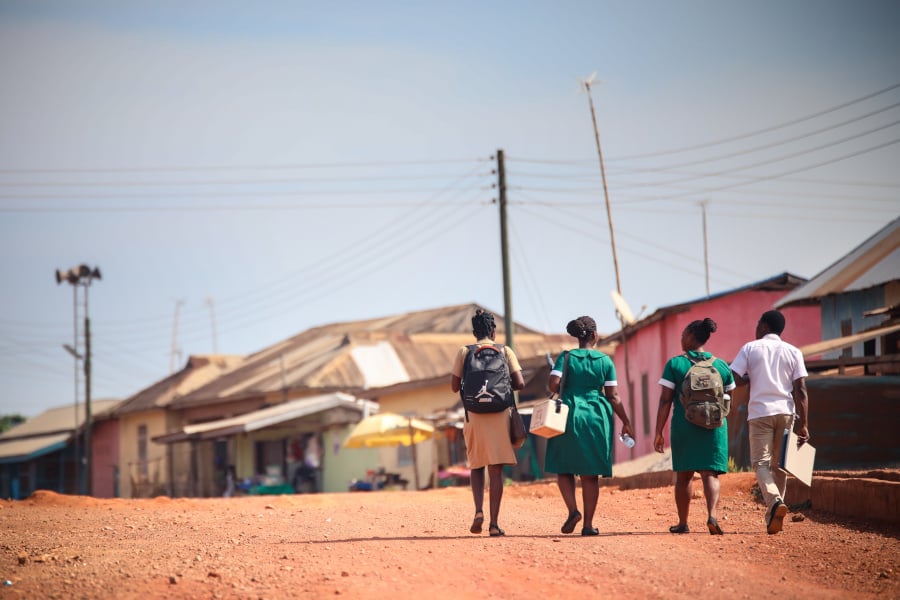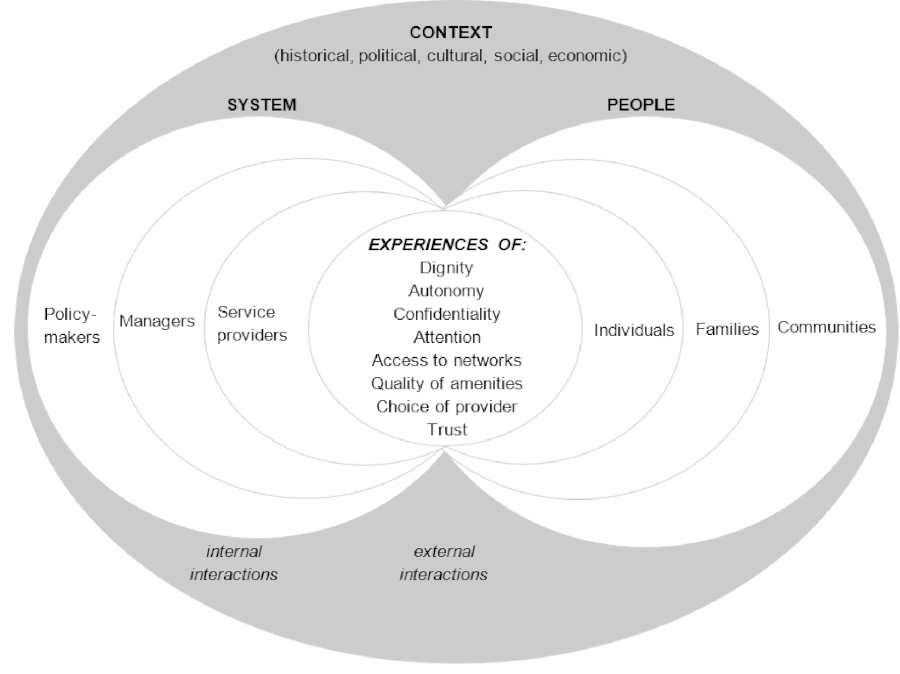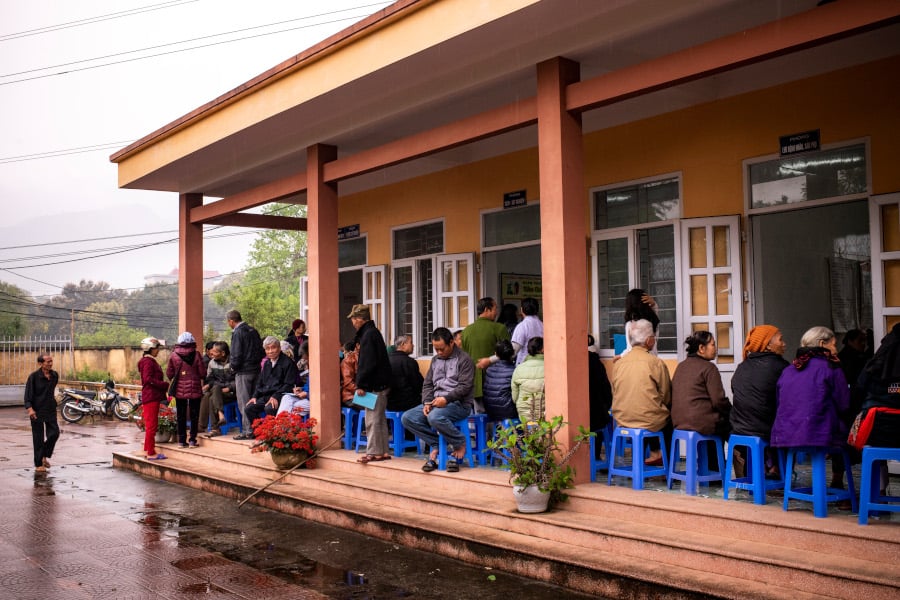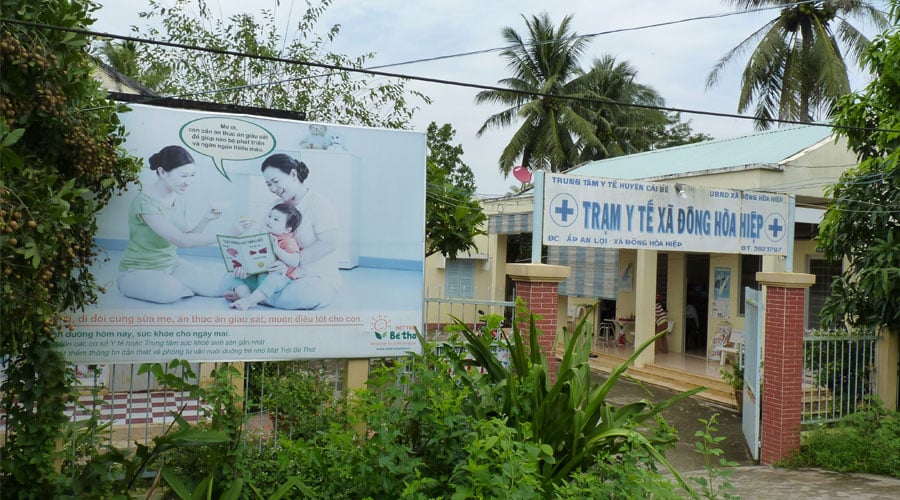RESPONSE is collaborative study between researchers from Hanoi University of Public Health, Ghana Health Service, Mental Health Authority Ghana, University of Ghana, University of Melbourne, University of Leeds and LSHTM. It seeks to contribute to improving health systems responsiveness in low- and middle-income countries through case studies of addressing health needs of vulnerable groups in Ghana and Vietnam.
RESPONSE is a 42-month collaborative mixed-methods study which uses realist evaluation as an overarching methodological framework. We plan to co-produce, implement and evaluate context-sensitive interventions to improve systems responsiveness to the needs and expectations of pregnant women, particularly those with neglected mental health problems.
Project rationale
The socio-economic growth in many low and middle-income countries (LMICs) has resulted in more available – though not equitably accessible - healthcare. Such growth has also increased demands from citizens for their health systems to be more responsive to their health needs. Responsiveness, a key goal of any national health system is “…when institutions… are cognisant and respond appropriately to the universally legitimate expectations of individuals... safeguarding of rights of patients to adequate… care” (de Silva, 2000; p.3) and its improvement is the main focus of our study.
Aims and objectives
Our core research question is: “In what way can health systems become more responsive to neglected health needs of vulnerable groups within the contexts of lower-middle-income countries?” The project objectives are to:
- Conduct in-depth analyses of how health systems responsiveness is understood and enacted by key health systems actors, and to what degree the local health systems are responsive to these expectations;
- Co-produce, implement and evaluate context-sensitive interventions to improve health systems responsiveness to neglected health needs of vulnerable groups;
- Develop an empirically based and theoretically grounded model of complex relations between the contexts, the mechanisms and the outcomes of the interventions to improve health systems responsiveness;
- Develop transferable best practices for scalability and generalisability of the pilot-tested interventions;
- Strengthen research capacity through extending existing collaborations into strong South-South and South-North exchange and learning within and between Ghana, Vietnam, Australia and the UK.
Theoretical framework
We approach health systems responsiveness as a dynamic social action which is produced via relationships between different actors within contexts of particular socio-economic arrangements as they negotiate experiences of professional, citizen, consumer and patient rights and responsibilities.
Health systems responsiveness involves two socially-constructed interactions:
- internal (i.e. between policymakers, managers and service providers, for example in resource allocation, target-setting, staff supervision and performance appraisal);
- external (i.e. between people and the system, typically during service provision).
Experiences of these interactions shape degree of health systems responsiveness across its eight domains: dignity, autonomy, confidentiality, attention, access to networks, quality of amenities, choice of service provider and trust. People’s engagements with health systems (e.g. to seek healthcare) and system’s responses to these engagements (e.g. service delivery) are shaped by their initial expectations from each side.
Impact
Decision-makers from facility, district, Health professionals in Ghana regional and national levels in both Ghana and Vietnam will be continuously engaged through embedding research into policy and practice.
Key study outcomes and impacts will be:
- Improved health systems responsiveness to neglected health needs of vulnerable groups in Ghana and Vietnam and;
- An empirically-grounded and theoretically-informed model of complex relationships Patients waiting at a clinic in Hoa Binh City in Northern Vietnam between the contexts, mechanisms and outcomes of the interventions, along with transferable best practices for scalability (i.e. expansion within similar contexts) and generalisability (i.e. to different contexts, such as other health areas and countries) for future health systems strengthening.
RESPONSE is a collaboration between researchers from Hanoi University of Public Health, Ghana Health Service, Mental Health Authority Ghana, University of Ghana, University of Melbourne, University of Leeds and LSHTM.
Sophie Trueman
Project coordinator
Professor Irene Agyepong
co-Principal Investigator, Ghana Team Lead
Professor Bui Thi Thu Ha
co-Principal Investigator, Vietnam Team Lead
Dr Sumit Kane
co-Principal Investigator, Australia Team Lead
Dr Ana Manzano
co-Principal Investigator, Leeds Team Lead
This theory-driven and mixed methods study will use realist evaluation as an overarching methodological framework. Realist researchers develop, test and refine middle-range theories which show causal pathways of how interventions work, for whom and under which conditions. Our initial theory, to be further tested and refined is:
Context-sensitive interventions for better recognition of initial expectations of key actors, if co-produced by these actors to target internal and external interactions and implemented within favourable policy contexts, will improve health systems responsiveness to neglected health needs of vulnerable groups, ultimately contributing to their better health outcomes.
The project comprises three phases. In Phase 1, we will understand actors’ expectations of responsive health systems, identify key priorities for systems responsiveness, using evidence from the realist synthesis will develop initial programme theory. We will also generate a baseline through reviewing relevant documents and analyse facility records, conduct in-depth interviews, focus groups and community survey.
In Phase 2, we will co-produce the context-sensitive interventions to improve health systems responsiveness. The interventions will seek to improve internal (i.e. within health system) and external (i.e. people-systems) interactions through participatory workshops with health workers and communities, addressing priorities from Phase 1. The co-production will be through meetings with key local, district, regional and national actors, to be led by relevant health authorities and carefully documented by researchers.
In Phase 3, we will implement and evaluate the interventions. The implementation will be through existing structures and processes. In the evaluation, we will test and refine our initial theory through comparing the intended design to the interventions’ actual performance. We will also assess interventions’ feasibility, acceptability and processes.
Read more details about the study’s methodology here.
Articles in Peer-Reviewed Journals
Understanding the barriers to integrating maternal and mental health at primary health care in Vietnam
Do Thi Hanh Trang, Bui Thi Thu Ha, Le Thi Vui, Nguyen Thai Quynh Chi, Le Minh Thi, Doan Thi Thuy Duong, Dang The Hung, Anna Cronin de Chavez, Ana Manzano, Kimberly Lakin, Sumit Kane, Tolib Mirzoev. (2024). Health Policy and Planning, 39(6): 541–551
“We can't expect much”: Childbearing women's ‘horizon of expectations’ of the health system in rural Vietnam
Kimberly Lakin, Dinh Thu Ha, Tolib Mirzoev, Bui Thi Thu Ha, Irene Akua Agyepong, Sumit Kane. (2024) Health & Place. 85: 103166
Using the WHO Self-Reporting Questionnaire-20 (SRQ-20) to Detect Symptoms of Common Mental Disorders among Pregnant Women in Vietnam: a Validation Study
Trang Thi Hanh Do, Quyen Thi Tu Bui, Bui Thi Thu Ha, Thi Minh Le, Vui Thi Le, Quynh-Chi Thai Nguyen, Kimberly Joyce Lakin, Tung Thanh Dang, Loi Van Bui, Thien Cong Le, An Thi Ha Tran, Hien Thi Thu Pham, Tuan Van Nguyen. (2023) Int J Womens Health 15: 599-609.
Burden of mental health problems among pregnant and postpartum women in sub-Saharan Africa: systematic review and meta-analysis protocol
Elizabeth Awini, Irene Akua Agyepong, David Owiredu, Leveana Gyimah, Mary Eyram Ashinyo, Linda Lucy Yevoo, Sorre Grace Emmanuelle Victoire Aye, Shazra Abbas, Anna Cronin de Chavez, Sumit Kane, Tolib Mirzoev, Anthony Danso-Appiah. (2023) BMJ Open 13(6): e069545
Realist evaluation to improve health systems responsiveness to neglected health needs of vulnerable groups in Ghana and Vietnam: Study protocol.
Mirzoev, T., Manzano A., Ha BTT., Agyepong IA., Trang DTH., Danso-Appiah A., Thi LM., Ashinyo ME., Vui LT., Gyimah L., Chi NTQ., Yevoo L., Duong DTT., Awini E., Hicks JP., Cronin de Chavez A., Kane, S. (2021). PLoS ONE, 16(1), e0245755.
Protocol for a realist synthesis of health systems responsiveness in low-income and middle-income countries
Mirzoev, T; Cronin de Chavez, A; Manzano, A; Agyepong, I; Ashinyo, M; Danso-Appiah, A; Gyimah, L; Yevoo, L; Awini, E; Ha, B; Do Thi Hanh, T; Nguyen, Q-C; Le, T; Le, V; Hicks, J; Wright, J; Kane, S (2021). BMJ Open; 2021; 11:e046992.
Other outputs
Realist synthesis of key strategies to improve health systems responsiveness to health needs of vulnerable groups in low- and middle-income countries
Mirzoev T., Manzano A., Cronin de Chavez A., King N., Wright J, Kane S., Agyepong I., Ashinyo ME., Danso-Appiah A., Kretchy I., Gyimah L., Yevoo L., Ha BTT., Trang DTH., Thi LM., Vui LT., Chi NTQ. International Prospective Register of systematic reviews (PROSPERO) registration CRD42020200353.
Resources on Realist Evaluations and Systems Responsiveness
- Dr Ana Manzano. Group deliberations (focus groups, etc.) in realist evaluation & realist synthesis: https://youtu.be/d8gWZkVukaU
- Prof Tolib Mirzoev. Tracing theories in realist evaluations of large-scale health programmes in low- and middle-income countries: https://youtu.be/uZOcVwqcWFQ
Joint RESPONSE/AMIPS Webinar Series on Systematic Reviews
- Systematic reviews and meta-analysis: Introduction: https://youtu.be/mkTFIkIYfHc
- Preparing the review protocol, formulating the question and developing the criteria: https://youtu.be/0Y-_fahVX7Q
- Finding and managing the literature for systematic reviews: https://youtu.be/7rmaR0Y2KV4
- Software for managing your systematic review search results and screening abstracts: https://youtu.be/1NAvBWFyuzM
- Quality assessment of the studies included in the systematic review: https://youtu.be/o1WMdgFt4Ps
- Data synthesis in qualitative and quantitative systematic reviews: https://youtu.be/iKLT1WcjtfU
- Analysing data, conducting meta-analysis and interpreting the results: https://youtu.be/qn07YRZzNPI

